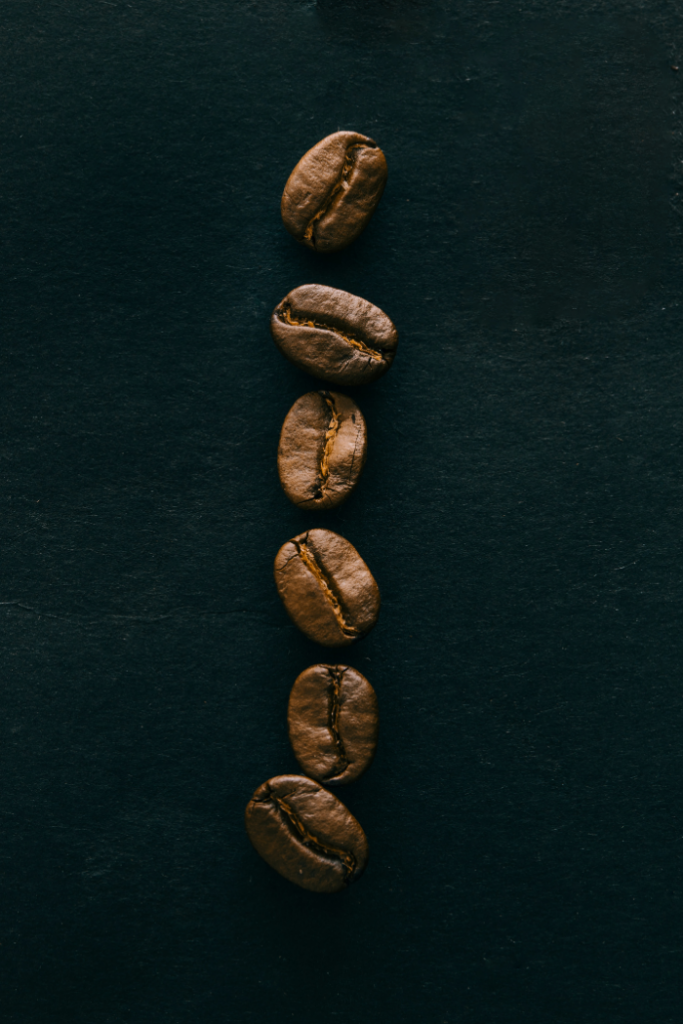We all know that coffee is one of the common ways to get our daily dose of caffeine, but does decaf have the same health benefits?

America’s beverage of choice? Coffee.
With 88.8 gallons being consumed per capita, it outdoes bottled water by a whopping 55.3 gallons (1).
However, many coffee-drinkers are wanting to swap the jitters that accompany their morning cup of joe for a jitter-less decaf coffee.
In this article, you’ll learn how decaf coffee is made, the health benefits of decaf compared to caffeinated coffee, and why people drink decaf coffee…
How Is Decaf Coffee Made?
Unfortunately, there are no decaffeinated beans on the coffee plant…
So when scientist Ludwig Roselius patented the first commercial decaffeination process in 1905, a steaming cup of decaf coffee was brought into the world (2).
However, his process was much less safe and much less regulated than decaf coffee is today. In fact, he used benzene in the extraction process, which is known to cause drowsiness, headaches, and confusion, among other side effects (3).
So, how is decaf coffee made today?
Well, in order for the coffee bean to be decaffeinated, it needs to undergo one of three methods:
- A chemical solvent (the most common method)
- A liquid carbon dioxide (CO2)
- Water
The two best extraction methods use CO2 or water, as they don’t involve any harmful chemicals.
The not-so-good extraction method is the one using chemical solvents. This method is reliant upon synthetic chemicals like ethyl acetate—a chemical that’s naturally-occurring in fruits like apples and pears (4); and methylene chloride, which is most commonly used in industrial applications like paint strippers, decreasing agents, and pharmaceuticals (5).
What to Look for When You Buy Decaf Coffee

When it comes to the decaffeination process, the Food and Drug Administration (FDA) requires that at least 97% caffeine needs to be removed. However, some decaf coffees can still contain between 3-12 milligrams of caffeine per cup.
Because coffee contains approximately 2,000 chemical compounds (2), it’s important to investigate how your coffee underwent decaffeination. If you don’t, then many of the health-promoting chemicals of the coffee bean (like XYZ) may be at stake.
The health of your coffee is completely dependent upon the stripping process. However, the FDA did conclude that the trace amounts of methylene chloride found in decaf coffee are so miniscule that it would pose no side effects to your health. In fact, they have strict limits on the presence of this chemical, with the limitation being 10 part per million—or 0.001 percent of the final product (6).
If you’re wanting to minimize your exposure, this can be a tricky investigation, as there are no specific labeling rules requiring an explanation as to how the coffee was decaffeinated. The best way to ensure you’re drinking ethically-decaffeinated coffee is to look for the organic seal (7). When in doubt, go for organic decaf coffee.
The Bottom Line: Is Decaf Coffee Good for You?
The decaf market brings in $2 billion USD annually, and for good reason. It boasts the same taste and aroma as regular coffee—without the jittery aftertaste.
But, is decaf coffee good for you?
According to a meta-analysis conducted by the journal Diabetes Care alongside a group of Harvard researchers in 2014, those who drank six cups of coffee per day had a 33 percent lower risk of developing type 2 diabetes than those who drank no coffee. This was the same for both decaf coffee and regular coffee.
However, Angela M. Zivkovic, Ph.D.—assistant professor in the department of nutrition at the University of California, Davis—says we should remain skeptical in our interpretation of the study’s results, stating that “it is very possible and likely that people who choose decaf are also making other ‘healthy’ lifestyle choices” (6).
As with many research studies, the results are up in the air. But a conclusion we can be clear on is that if you’re suffering from headaches, anxiety, agitation, nausea, increased heart or breathing rate, or ringing in the ears, organic decaf coffee may be a new part in your morning ritual (8). So if you’re wondering, “Why do people drink decaf coffee?”, that is one of the number one reasons—to calm the heart, minimize anxiety, and get better sleep.
References
- International Coffee Day: Americans drink more coffee than soda, tea and juice combined
- Plant biotechnology: Make it a decaf
- CDC | Facts About Benzene
- Ethyl Acetate – an overview
- Dichloromethane | CH2Cl2 – PubChem
- Is Decaffeinated Coffee Bad for You?
- Organic Coffee Certification in the US Coffee Industry
- https://www.webmd.com/vitamins/ai/ingredientmono-980/coffee#:~:text=Side%20Effects%20%26%20Safety,rate%2C%20and%20other%20side%20effects

